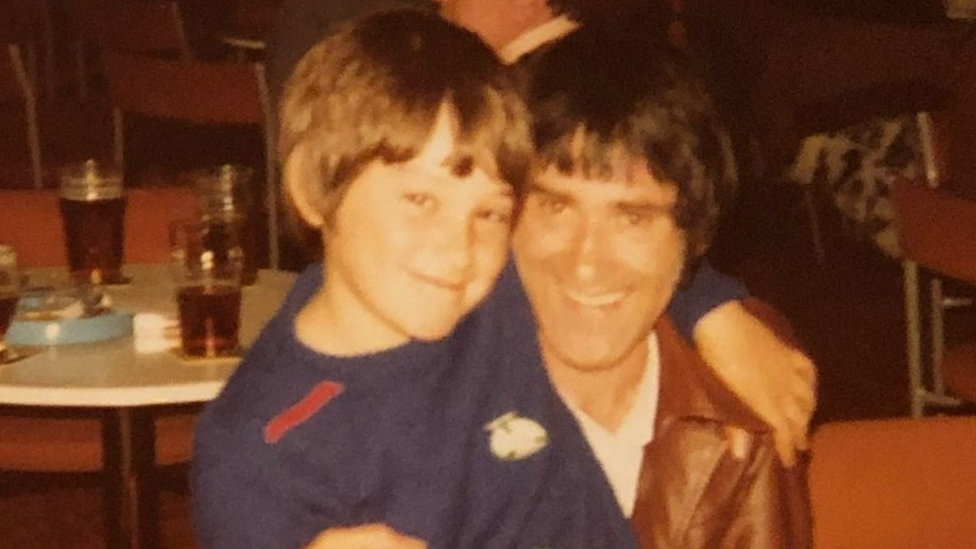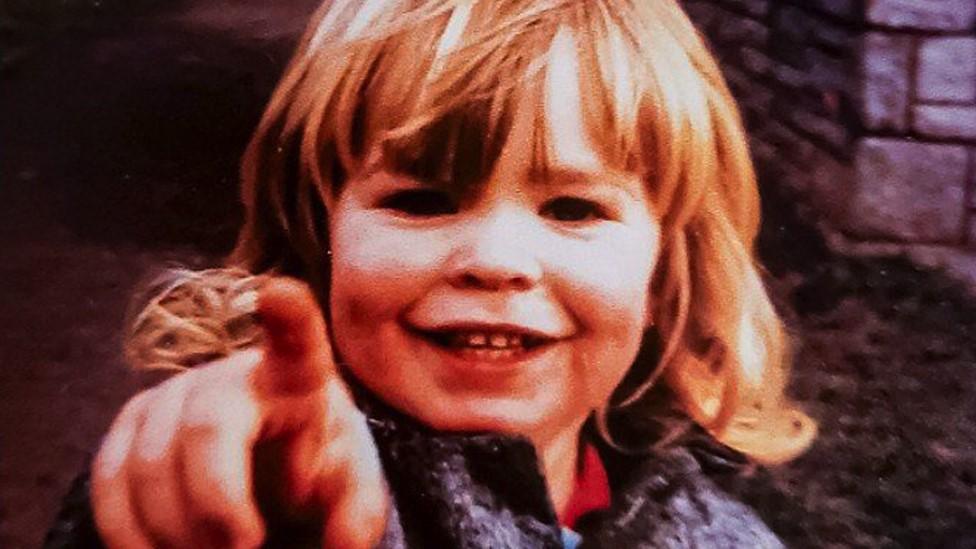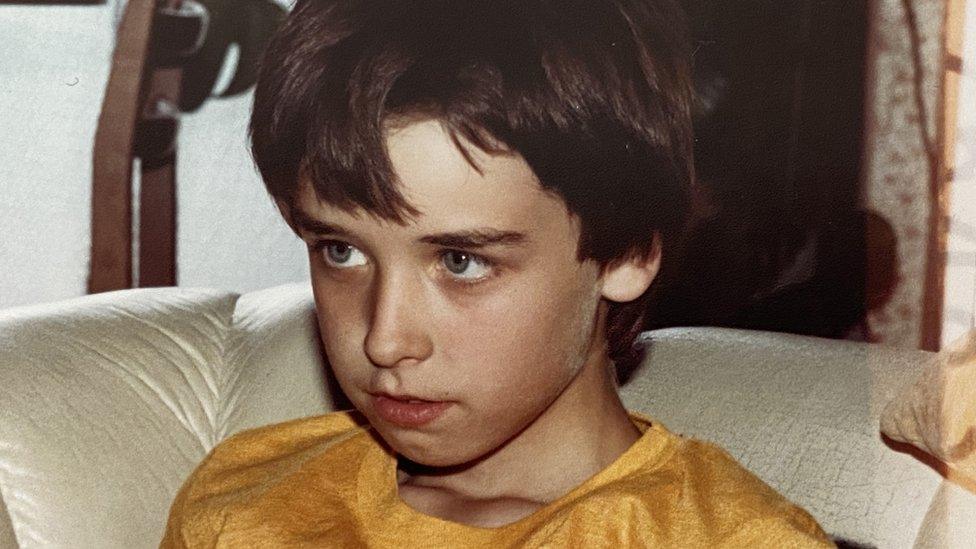'Sorry is not enough... it needs to be backed up'

Stuart Cantrill was 15 when his father Barrie died
- Published
A man whose father died after being given contaminated blood wants an inquiry to bring him "a little bit of closure".
Stuart Cantrill, of Cambridge, was 15 when his dad, Barrie, died in 1989.
A public inquiry into the treatment disaster will announce its findings in May after months of delays.
Mr Cantrill, 50, said: "Saying sorry is not enough; it needs to be backed up with something."
As a haemophiliac, his father's blood had trouble clotting and cuts that would usually take minutes to stop bleeding could take hours, said Mr Cantrill.
He was one of more than 30,000 people infected with HIV and Hepatitis C through contaminated blood products in the UK during the 1970s and 1980s.
'Shell of a man'
Many people with the condition received blood transfusions and treatments.
However, it was later revealed some of the blood products used had been contaminated with HIV.
Barrie had always been "poorly" due to his haemophilia and could not run around the park or play football.
But once infected with HIV and Aids, he turned into a "shell of a man," Mr Cantrill told BBC Radio Cambridgeshire.
"He was very frail and thin. The day after his 48th birthday, he fell and broke his hip," he said.
Barrie went to hospital after his fall and never came home.
"I remember every single detail of the day dad died. It was the morning of Saturday 26 August," he said.
"He was in the Queen Elizabeth Hospital, Birmingham. We were all sitting around the bed, and we heard him rattle.... it was blessed relief when the end came.
"When some people die you hear they have a peaceful expression, and it all seems OK.
"But my dad had this long silent scream on his face when he died; he was clearly in agony. I remember walking out of hospital and just feeling empty."
A UK-wide inquiry was announced in 2017 after years of campaigning.
In total, it is thought about 2,900 people have died because of the scandal. The inquiry will publish its report on 20 May.
'Sorry is not enough'
In 2022, following advice from the inquiry, the government made interim payments of £100,000 each to about 4,000 surviving victims and some bereaved partners.
Mr Cantrill said: "Words are cheap so when someone stands up and says 'We accept the moral case for compensation,' what does that mean?
"No amount of money will bring anyone back or change the suffering, but it will reinforce that someone is genuinely sorry and recognise every life affected and lost."
A government spokesperson said: "This was an appalling tragedy and our thoughts remain with all those impacted.
"We are clear that justice needs to be delivered for the victims and have already accepted the moral case for compensation.
"This covers a set of extremely complex issues and it is right we fully consider the needs of the community and the far reaching impact that this scandal has had on their lives."
Follow East of England news on Facebook, external, Instagram, external and X, external. Got a story? Email eastofenglandnews@bbc.co.uk, external or WhatsApp us on 0800 169 1830
- Published22 April 2024

- Published18 April 2024

- Published6 October 2022
